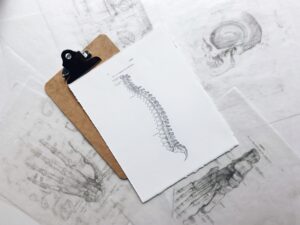A chiropractor in Birmingham, AL can effectively treat most cases of back pain. Studies show that chiropractors have been known to treat acute back pain. However, there are conditions that could be potentially serious and should be considered before starting treatment. Many conditions can be screened with a physical examination and a thorough check of the patient’s medical history.
There are three categories of chiropractic diagnosis. The first is potentially serious problems and can include infection, tumor, local open wound, prolonged bleeding, pacemaker problems, problems with artificial joints, or joint infection. The second is nerve problems, and this is where the nerve root in the low back is compressed or pinched. Typical causes of this can include spinal stenosis or a lumbar herniated disk. Non-specific back pain is the most common presentation and does also include pain where there isn’t an identifiable cause. If there is a chiropractic diagnosis of a potentially serious injury, then the chiropractor will likely refer the patient to a relevant medical specialist. When appropriate, the chiropractor can co-manage care with other back pain specialists.
Symptoms that should raise concern include any problems with bladder function, numbness around the genitals, pain with chills, fevers, sweats, pain that causes you to be awake at night, back pain and associated leg pain, tingling and numbness in the legs, and weakness of the muscles in the legs. Patients who have spinal cord compression or nerve pain shouldn’t have manipulations of the spine. These cases are rare but it helps to have a good understanding of the back pain before beginning any chiropractor treatment.
What Happens During a Chiropractic Exam?
An initial exam for lower back pain will have three parts. This can include consultation, case history, and physical examination. X-rays and labs may also be performed.
• Consultation: During the consultation, the patient will meet with a chiropractor and provide a brief overview of his or her back pain and include a description of symptoms, areas of pain, frequency of symptoms, and if anything makes the pain better or worse.
• Case History: During the case history portion of the exam, the chiropractor will identify the areas of problem and the nature of the back pain by asking more in-depth questions about the patient’s history. Some of this information can revolve around family history, past history of other treatments, occupational history, and dietary habits.
• Physical Exam: During the physical exam, chiropractors can use different methods to determine which spinal segments may require treatment. Depending on the results of this exam, a chiropractor may also need to use additional diagnostic tools, such as an X-ray, to locate an altered position of the vertebra.
Your first visit with a chiropractor won’t be much different than what you are used to with other medical providers. After the exam, there will be a discussion about what the chiropractor thinks is happening and what can be done to help.
Since the causes of back pain can be multifactorial and complex, it can be harder to get a diagnosis for back pain than any other medical condition. Some spinal diagnoses are straightforward, but for other conditions, it can be harder. However, it is still important to get an accurate diagnosis of back pain because different problems and diagnoses will need different treatment approaches. Taking a proactive approach in the process of getting a diagnosis can help you get on the road to recovery faster.
It helps to learn the terminology since there are many terms that can be used to describe spinal disorders. Unfortunately, there isn’t an agreement in the medical field about the precise definition of any of these terms, including pinched nerve, bulging discs, or herniated discs. Conventional medical terminology can sometimes be misleading for back pain sufferers. For example, degenerative disc disease isn’t exactly a disease but a condition that can produce pain from a damaged disc. Everyone’s discs will degenerate with age but not everyone will develop pain symptoms.
Diagnostic tests don’t provide a diagnosis. Instead, it’s important to keep in mind that medical terms such as herniated disc refer to findings on an MRI or CT scan and there aren’t tests that can actually determine the cause of pain. These tests are useful to pinpoint the source of the lesion and can help with the diagnosis and development of a treatment plan. Sometimes there isn’t a cause of chronic back pain but the pain still needs to be managed with a treatment plan.
If you are ready to get started on your treatment of back pain, call us today at 205-637-1363.







